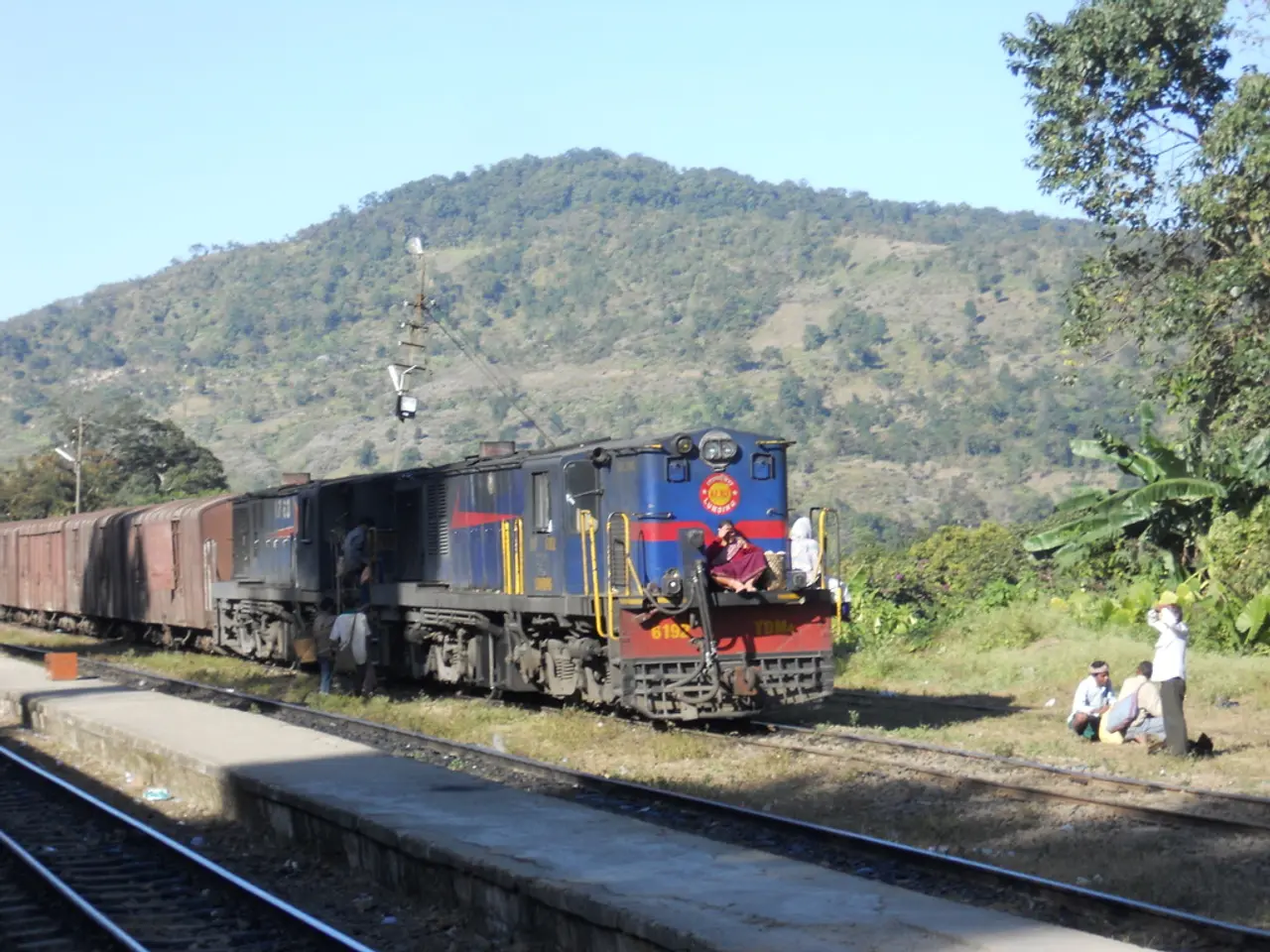Will Germany maintain the ticket, and potentially increase its cost? - Germany's travel ticket remains in place, but will costs potentially escalate?
Germany Ticket Faces Price Increase in 2026 Amid Funding Debate
The Germany Ticket, a popular nationwide public transport initiative used by around 14 million people, is set to continue in 2026, but with a significant financial gap that needs addressing. To maintain the program, the federal government has proposed an annual allocation of €1.5 billion, while the states are also expected to contribute €1.5 billion each year.
The financial shortfall arises from the combined costs of running the nationwide public transport initiative, which requires more funding than initially available. The federal government’s draft amendment to the Regionalisation Act outlines this funding model, ensuring coordinated contributions from both federal and state levels to bridge the financial shortfall.
The focus on sustained funding suggests efforts to mitigate substantial fare hikes by government coverage. However, no precise information was found about the potential increase in ticket prices for consumers. The federal commitment reflects policy goals for sustainable transport and environmental benefits.
Negotiations between the federal government and the states revolve around how additional costs for transport companies will be covered beyond the €3 billion already provided. The key issue in these negotiations is finding a fair and sustainable solution that ensures continued affordability and social inclusivity in regional mobility services.
Some states demand that the federal government should bear the additional costs alone, while the federal government has rejected this proposal. The ongoing discussions aim to find a compromise that ensures the Germany Ticket continues to offer affordable travel options for millions of people across Germany.
If the federal and state governments fail to agree on adequate funding, a renewed price increase threatens, as stated by the Association of German Transport Companies and the Federal Association of Rail Passenger Transport. The German Association of Towns and Municipalities has warned against a stalemate in the financing of the Germany Ticket, fearing weeks and months of uncertainty.
The transport industry sees great potential in job tickets, but many companies are hesitant due to a lack of long-term funding commitment from the federal government. One proposal to boost the ticket's popularity is the extension of the discount for the Germany Ticket for job seekers, similar to D-tickets for students, as suggested by Alexander Moeller, CEO of the Association of German Transport Companies.
In the coalition agreement of CDU, CSU, and SPD, it was agreed that prices would initially remain stable, with a gradual increase of user financing from 2029 onwards. However, NRW's Minister of Transport, Oliver Krischer (Greens), stated that the €1.5 billion allocated would not be enough to keep the ticket's price stable in 2026.
The ongoing financing debates around the Germany Ticket must be ended, according to NRW's Minister of Transport, Oliver Krischer. The ticket's price was increased by around 18 percent from 49 euros to 58 euros per month at the beginning of the year.
In conclusion, the Germany Ticket will continue in 2026 with cost increases expected due to a financial gap. This gap will be covered by joint €1.5 billion annual contributions each from the federal government and the states, as stipulated in the draft Regionalisation Act amendment to maintain and enhance the ticket system. The ongoing negotiations aim to find a compromise that ensures the Germany Ticket continues to offer affordable travel options for millions of people across Germany.
- In an effort to ensure the continuation of the Germany Ticket, the Federal government and EC countries (European Union member states) could consider vocational training programs for the transport industry to increase efficiency in public-transit, potentially reducing costs and ensuring sustainable financing.
- To offset the financial shortfall in the Germany Ticket, the transportation sector could explore alternative funding opportunities, such as implementing partnerships with finance industries for long-term investments in the business.
- As the Germany Ticket faces cost increases in 2026, policymakers should explore innovative, cost-effective measures like job tickets, particularly for job seekers, as a means to make travel more affordable and attract more consumers during these financial uncertainties.




